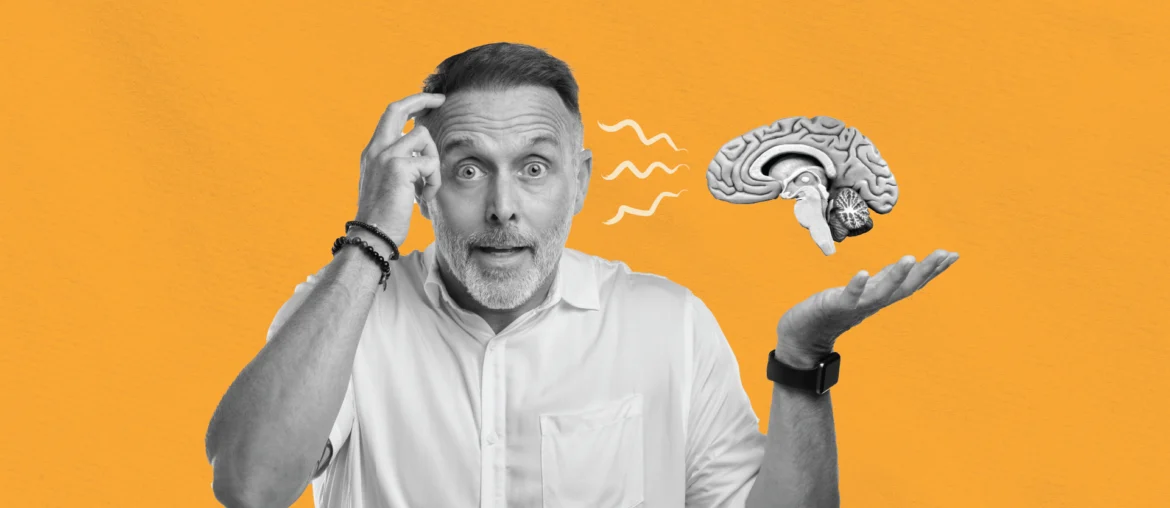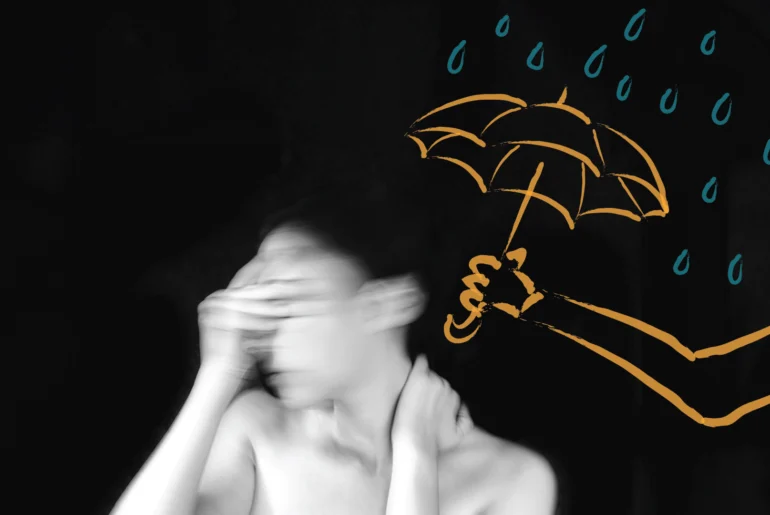Men don’t go through menopause in the same way women do, but they do experience age-related hormonal changes that are sometimes called “andropause” or “male menopause.”
While women experience a well-defined menopause marked by the cessation of menstruation and rapid hormonal changes, men undergo a more gradual hormonal shift in midlife.
What is andropause?
Andropause, sometimes called “male menopause,” refers to the gradual decline in testosterone and age-related changes that men experience in middle age. Beginning around age 30, men’s testosterone levels decline by approximately 1% per year. By the time men reach their 40s and 50s, this cumulative decrease can lead to noticeable physical and psychological changes.
The medical community often uses more precise terms like “age-related low testosterone” or “late-onset hypogonadism” to describe this condition, as it differs significantly from female menopause in its progression and symptoms.
Physical symptoms and changes
As testosterone levels decline, men may experience various physical changes:
- Reduced Muscle Mass: Testosterone plays a key role in maintaining muscle tissue. Lower levels can lead to decreased muscle bulk and strength.
- Increased Body Fat: Particularly around the abdomen and chest (sometimes called “male breasts” or gynecomastia)
- Reduced Bone Density: Increasing the risk of osteoporosis and fractures
- Changes in Sexual Function: Including reduced libido, fewer spontaneous erections, and erectile dysfunction
- Sleep Disturbances: Including insomnia or increased fatigue
- Physical Changes: Thinning hair, reduced body hair, and skin changes
Psychological and emotional effects
The hormonal shifts of andropause can also affect men’s mental and emotional well-being:
- Mood Changes: Including irritability, depression, or lack of motivation
- Cognitive Changes: Some men report difficulties with concentration or memory
- Self-Image Concerns: As physical changes occur, some men struggle with their changing appearance and capabilities
- Existential Questions: Midlife often triggers reflection on life achievements, remaining goals, and mortality
The “male midlife crisis”
The term “midlife crisis” has become somewhat clichéd, but it reflects a real psychological phenomenon that some men experience. This period of self-evaluation can lead to significant life changes, as men reassess their priorities, relationships, and personal fulfilment.
Research suggests that this transitional period is normal and can ultimately lead to growth when navigated thoughtfully. However, impulsive decisions made during this time may sometimes be regretted later.
Treatments and management approaches
For men experiencing significant symptoms, several approaches may help:
- Lifestyle Modifications: Regular exercise, particularly strength training, can help maintain muscle mass and bone density. A balanced diet and adequate sleep are also crucial.
- Mental Health Support: Therapy or counselling can help men navigate the emotional aspects of this transition.
- Regular Health Screenings: Middle age is an important time to monitor cardiovascular health, prostate health, and other age-related conditions.
The positive side of male midlife
While the physical changes of andropause present challenges, midlife can also be a period of significant positive development for men:
- Emotional Maturity: Many men develop greater emotional intelligence and self-awareness
- Deeper Relationships: This period often leads to more meaningful connections with partners, children, and friends
- Wisdom and Perspective: Life experience contributes to better decision-making and priority-setting
- New Pursuits: Many men discover new interests and passions in midlife
While the term “male menopause” is somewhat misleading, the midlife transition for men involves real biological, psychological, and social changes. Understanding these changes can help men approach this phase of life with awareness and develop strategies to maintain physical health, emotional well-being, and a positive outlook for the decades ahead.
By recognizing andropause as a normal part of male aging, rather than a deficit or disease, men can embrace this transition as an opportunity for growth and renewal.




